The Philippines is a large country in the South Pacific, made up of more than 7,000 islands. After enduring 400 years of Spanish rule, and then used as a strategic base by the US during World War II, it has thrown off the yoke of colonialism and struggles as an independent developing country. I am here in Manila until Thursday; so far I’ve seen almost nothing of Manila, due to our heavy schedule, but I have seen devastating amounts of what hemophilia can do when there is no treatment.
The government does not buy factor, despite years of dedicated negotiations by the World Federation of Hemophilia. There are drug distributors here who are licensed to sell some products (NovoSeven, Koate DVI among them) but only the wealthy few with hemophilia can afford them. Even poor patients must pay for basic things like syringes, needles and even band-aids. Life is very hard for the majority of hemophilia patients, and almost every one I meet has some major deformity, trauma or has had a family member die from untreated bleeding.
On Monday we met first thing with a group of reporters representing various national newspapers and magazines. At the invitation of Andrea Trinidad-Echavez, a mother with von Willebrand disease, and media expert, these reporters listened to my presentation of hemophilia, and its symptoms, treatment and effects, followed by extremely emotional testimonials from the patients who attended. One was Angelo Cuevas, 27, who suffered a huge psuedotumor on his hip. He related his story of trying to find treatment, of not being able to afford an operation due to the high cost of factor and the large amount he needed. When he recounted what the pain was like, you could have heard a pin drop. Angelo stammered, bit his lip, and tried to go on. He was flooded with emotions remembering the pain: “It was as if I was going mad. I screamed with pain and my neighbors were scared,” he said in his soft voice. I am not sure many of us know what level of pain that is. I looked around the room as Angelo spoke and saw amputations, twisted hands, feet that cannot be flexed flat, missing eyes, bandages, crutches; so much pain was represented here.
The reporters stayed for 90 minutes and were genuinely moved by what they heard: how could a human not be?
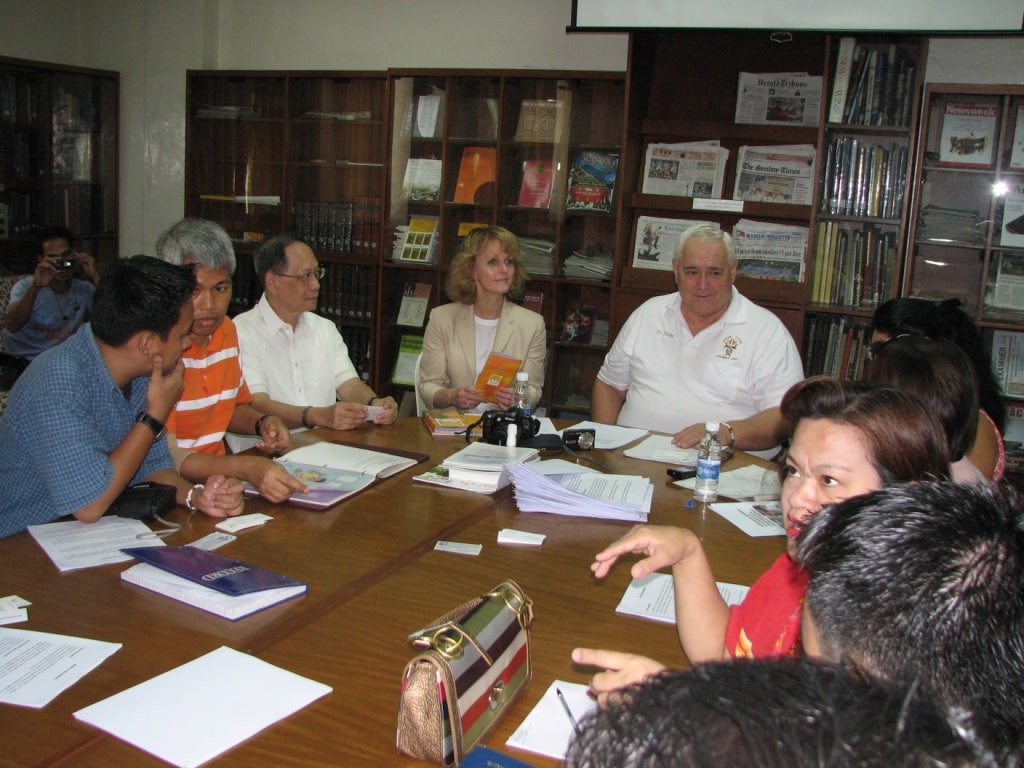
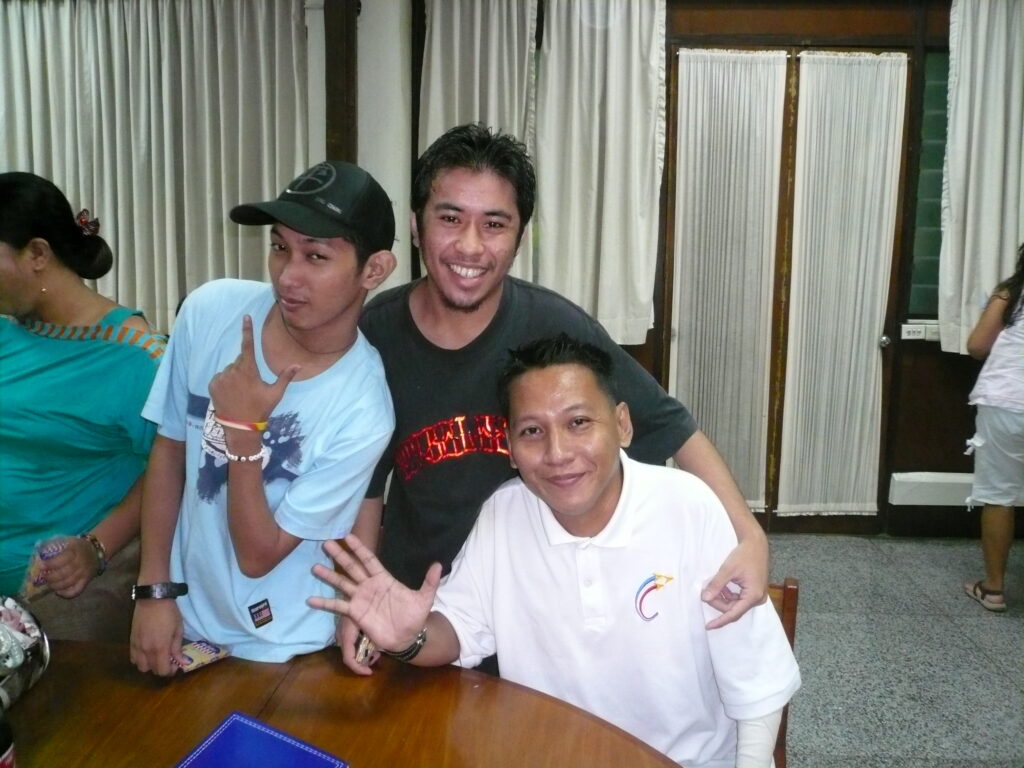
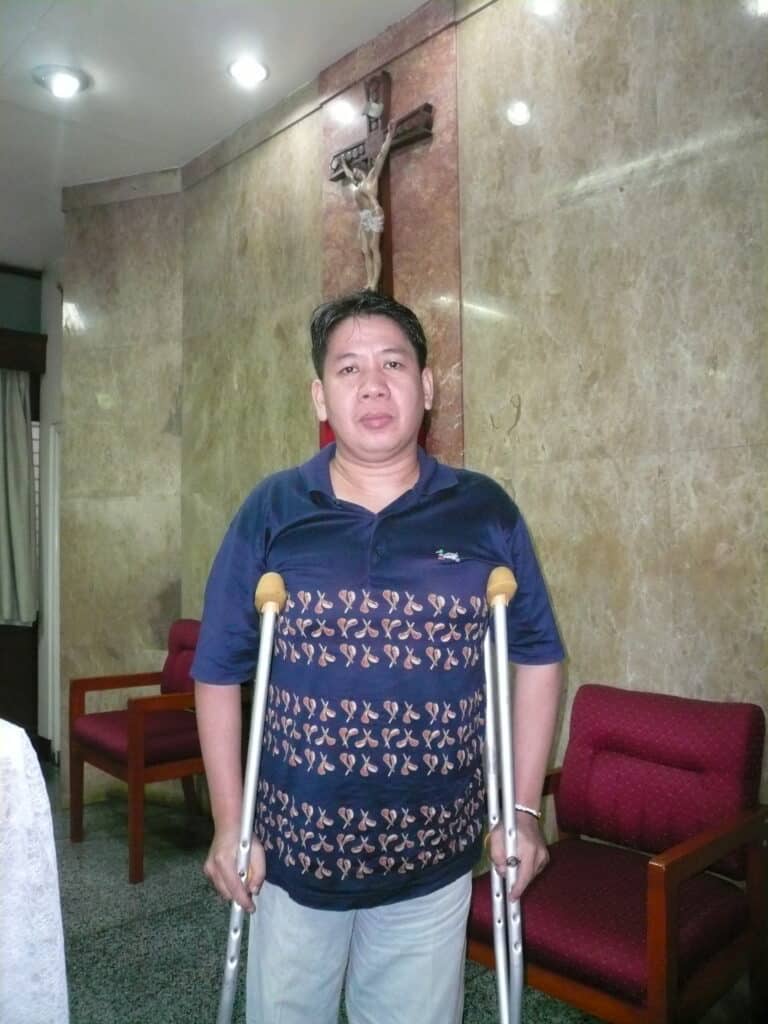
We spent the afternoon then meeting with members of HAPLOS, which stands for Hemophilia Association of the Philippines for Love and Service. Haplos also means “human touch” roughly translated from the local language. This is headed by Rey Sarmenta, the father of a grown man with hemophilia. Rey worked in commercial business for over 30 years, and is educated, well connected and deeply compassionate. He could have retired many years ago to spend each day resting in comfort, but instead has dedicated himself to helping others like his son. HAPLOS is in excellent standing with the WFH, and struggles to help so many while operating with so little. Like in most developing countries, it’s almost impossible to get the government to pay attention to the needs of those with bleeding disorders when there are economic, political, climate and epidemic issues to confront.
We relaxed that evening at the Columban missionary compound we are visiting, guests of Father Don Kill. Father Don has been our main contact here for about five years. Also compassionate and dedicated, he operates a home for teens in Mindanao, in the south. He met a teen with hemophilia one day, took him in, and has been a champion of people with hemophilia ever since. He has turned to us for factor time and again, and his expert ability to organize and follow through has enabled us to get so much factor to the Philippines that this country represents 23% of all our factor donations, making the Philippines our largest recipient of aid.
On Tuesday, October 14, we met first thing in the morning with the patients again, without HAPLOS, to hear their opinions and record their needs. Filipinos are often characterized by their gentleness, and like many Asian people, avoid public confrontation and frown upon outspokenness. How different that is from the America culture, where speaking your mind in public is not only a privilege, but is considered a right (and good entertainment). Allowing patients to speak openly helps them assess their own feelings and needs.
See photos of the whole trip here.
Not surprisingly, the focus was on factor: how to get more, how to share what little is available. Despite the large amounts we have sent, I could see we were only touching the tip of an iceberg! That was momentarily disturbing, because if the Philippines is our largest recipient and we are only serving the needs of a few, but I can’t afford to think like that. What must do whatever we can do.
One mother told how her son had an intracranial bleed and almost died, but was saved with a donation of factor. A man named Elmer told us how he made history: he was the first Filipino patient to have a successful, no complications amputation, with the factor from Project SHARE. (Imagine thinking of how lucky you are to have a successful amputation!) He was very grateful.
Most touching was Jeffrey, a young man with an expression too old for his years. He was accompanied by his mother, who specializes in alternative therapies like massage. Jeffrey is one of five brothers, all with hemophilia. Four have died. Four. With ancient pain in her eyes, the mother told us how each had died: one from an intracranial bleed, one form a motor accident, one from an operation… Jeffrey looked away, his face becoming blank as she spoke. Clearly, Jeffrey was all she had left, and she was desperate to ensure he would live. He is a university student with impeccable English, but they are not wealthy. Without money, Jeffrey could not pay his tuition bill, and his grades would not be released. Without grades, he cannot enroll in next semester’s session. They were not asking for help but only highlighting the difficulties of life here.
How much does his education cost for one semester? $200. I told him we could cover that and we’d find a sponsor for next year. (If anyone reading would like to sponsor Jeffrey, we have enrolled him in Save One Life; just email me and let me know) Jeffrey is studying to be a psychologist and wants to dedicate his career to helping the patients with hemophilia in the Philippines. With all that he has suffered personally, he has turned his pain into a mission. It’s inspiring to see how resilient the human spirit is!
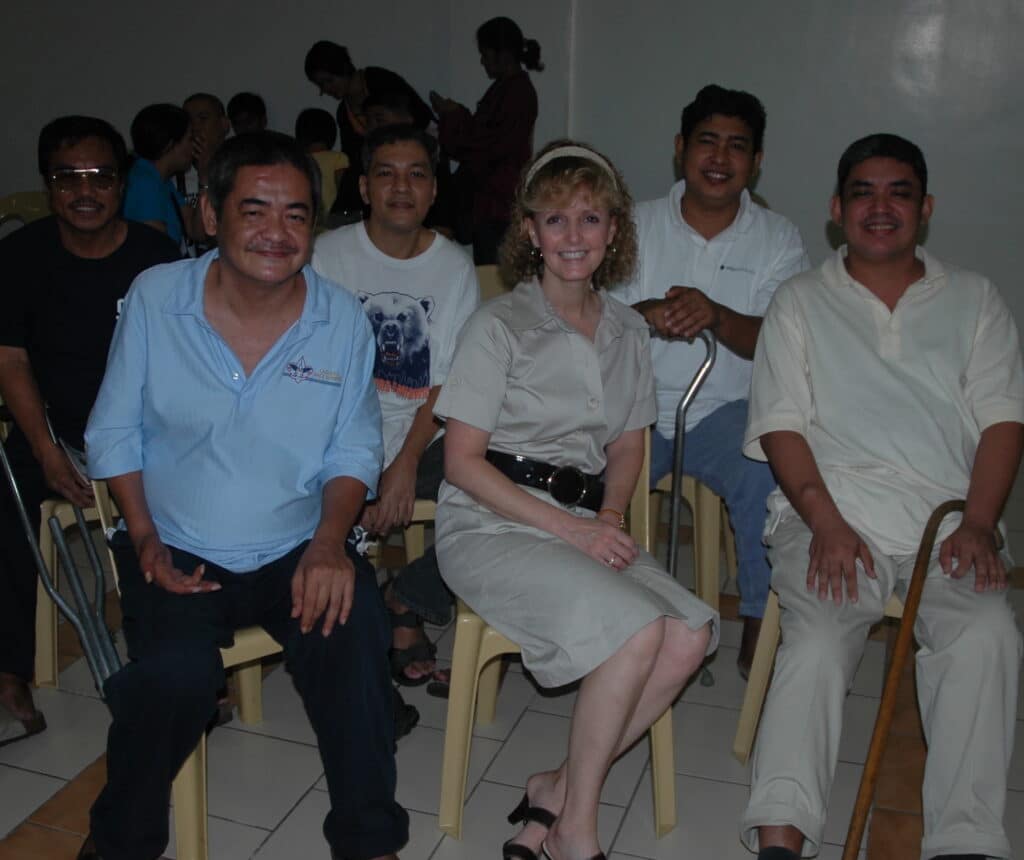
After this meeting we stepped out into the steamy, tropic air and drove through Manila to attend a luncheon meeting by HAPLOS at a Christian center. Lunch was a simple KFC style box lunch and the presentation highlighted HAPLOS’ accomplishments through the years. There is a strong focus on compassion and community. Most of all, HAPLOS stresses psychological support, more than any other country I have visited. “Without factor, sometimes it’s all we can focus on,” one board member said. The board is composed of mostly parents and patients, all volunteers.
A gathering of patients took place after the presentation, and these were all different patients than the ones we had met with that morning. The need, the pain, the suffering…I have never felt so helpless in all my life. While person after person stood and thanked Project SHARE for the factor that helped with a surgery, with a dark time, with a head bleed, with a life saved, I realized that so much more work needs to be done to find a way to close the gap between the haves and have-nots. One young, delicate mother, Olive, stood and told us her 12 year old, factor IX deficient son had been hospitalized for a week with a head bleed, and she broke down crying as she asked for help. A man with an obvious eye trauma stood and said he could not afford to have surgery for his eye; Father Don stepped in and informed him of how to apply for factor through Project SHARE. Another weeping young mother came forward holding her three year old son, whose elbow was swollen and hot—an active bleed. While her son was not crying, indeed looked bored, she was shaking and crying uncontrollably. Was she suffering from guilt? Later on we spoke to her and learned she was recently divorced, and has two children with hemophilia, no money, and under great emotional duress. This is where HAPLOS can excel in helping.
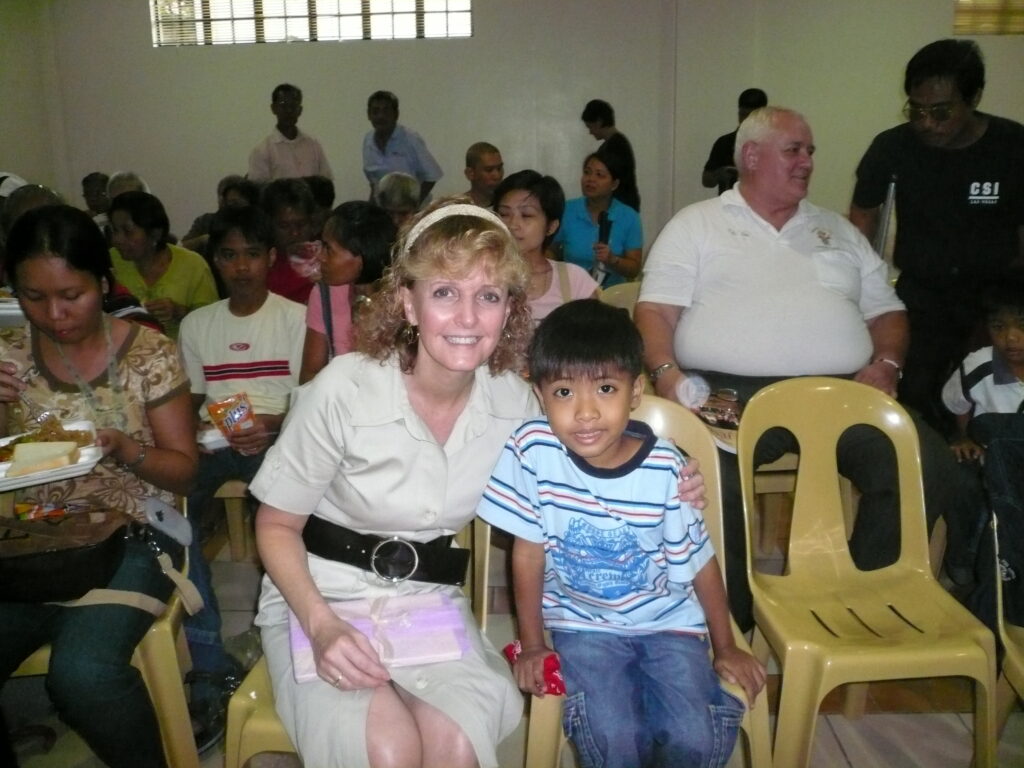
The meeting was capped by lunches for everyone, and the great news that we would be enrolling everyone in Save One Life, which would help ease some of their burdens by providing each person with a US sponsor who will give $20 a month (we will need those sponsors son after I return, so please consider helping). Everyone’s eyes lit up at the news, because so many people in attendance earn so little, and deal with pain that we rarely have to face. Can you imagine having your child with hemophilia actively bleeding, in pain, and not being able to do a single thing to stop it or to help?
Some of the patients had traveled three hours to attend this meeting — three hours by bus, in pain, spending precious pesos. We pledged to reimburse everyone for travel expenses, also much appreciated. As we filtered out of the center, I saw how the entire group shuffled out, walking unevenly from such crippled limbs.
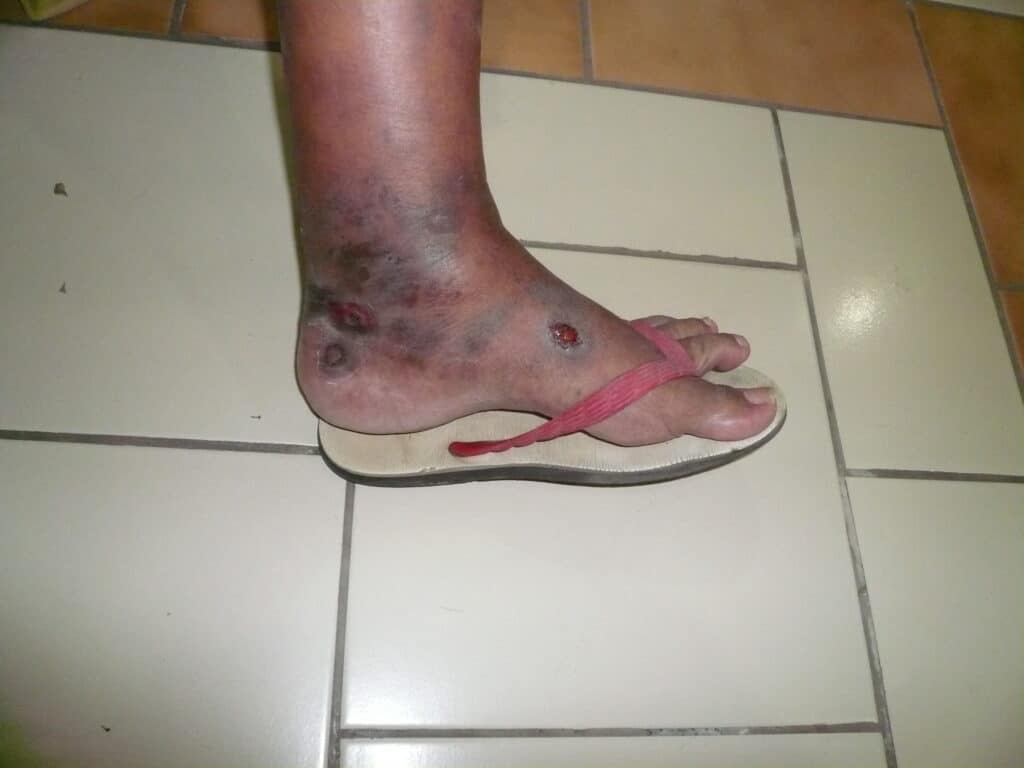
Around 4 pm we left to visit a patient in his home. This is always the favorite part of my trips, we get to enter the world of the patients and directly see their needs — the better to help meet them. We passed the impressive business center of town and then drove by shanties teetering on the banks of muddy rivers. Yancy is an 18-year-old who lives on a dark and greasy looking alley. Crowded, noisy, hot, Yancy and his mom share their two-room dwelling with four other siblings and their father. Hard as it is to fathom that, this was a step up for them! They had recently moved there from a squatter’s place, under power lines. Yancy is a second year university student (college starts at age 16 here) and determined to graduate, despite poverty, overcrowding, a bed on a concrete floor, and untreated hemophilia. He is also available for sponsorship now. Any takers? We spent that evening at a gathering at Rey’s home, sampling delicious local cuisine, relaxing with the doctors and patients, and of course, celebrating with karaoke. I managed to avoid having to sing somehow, and we were entertained by Father Don, who likes to sing Elvis, and Mayette, a board member, who has a gorgeous voice. I could see that HAPLOS really is about love and service, and deep faith. The Philippines is 95% Roman Catholic and faith enters into every aspect of life for the common person. Perhaps this faith has sustained them this far on a journey of immense suffering and yet strong community. Mayette ended our wonderful evening by singing the adopted theme song of HAPLOS, “If We Hold On Together.”
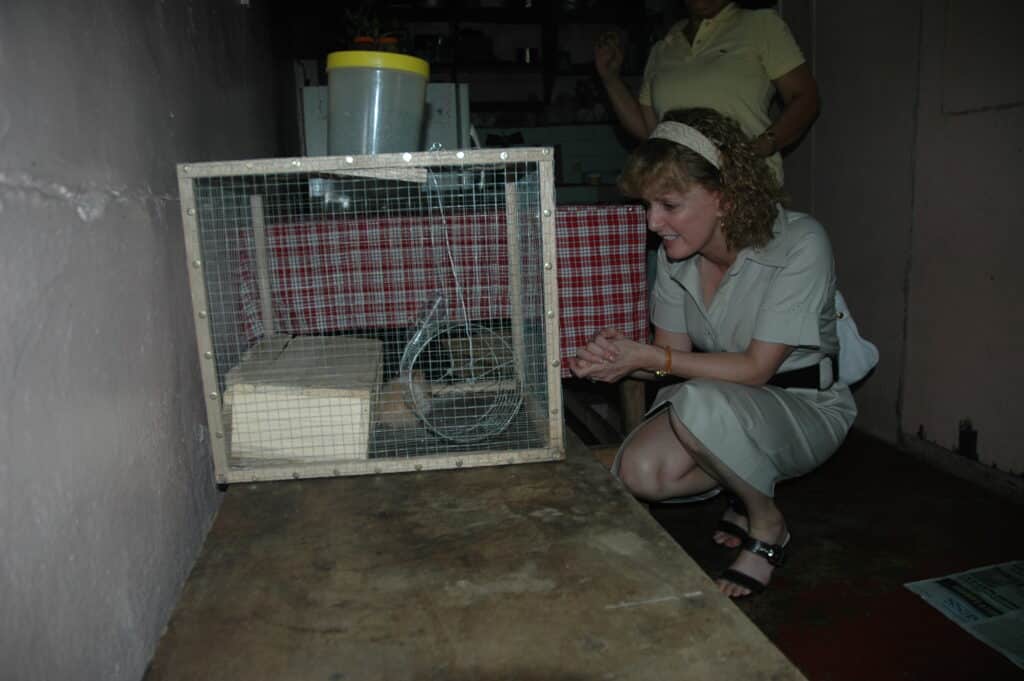
The best news was for last: as we were leaving I learned from Dra. Flerida one of the main hematologists, that factor for Olive’s son, the one with a head bleed) had just arrived that afternoon from our office. Her son was going to be fine.


2 thoughts on “The Philippines: Dedication, Love and Service”
Hi! Thank you for posting this article about hemophilia and featuring stories about some of the hemophiliacs in the Philippines.
Way back in July 2007, when i was still a Medical Technology intern, I saw Angelo Cuevas confined in one of the hospitals here in Cebu where i had my internship program. His condition fascinated me so much but I felt so much pity for him..alone in his ward bed, pale, quiet, looking so sad, and the only Tagalog-speaking patient we have. When I was asked by one of our seniors to get some blood samples for Angelo’s crossmatching, I thought it’s my chance to chat with him and maybe I can make him smile and make him feel comfortable with the place..luckily i did. Since then, I always check him in his ward. After his 3 months stay in the said hospital, i haven’t heard from him since. I have always wanted to know how he has been doing when finally I read this article. Well, thanks for this blog. I don’t think Angelo still remembers me but I am happy now knowing that he is getting better now has finally found a financial help to sustain his medical needs.
HI!! I`m Ezra > I have a Hemophilia A disease > i CANNOT buy factor 8 at low price > can you help me find a distributor of factor 8 at low cost . i am now 11 years old and i'm grade 6, i was diagnose since i was 9 month old !! i became victim of several accidents of head trauma when i was 1,5and 6 years old!! please send me a email(cezra31@yahoo.com) if where i can buy factor 8. as of now i cannot normally go to school because i always had a feet bleeding because of lack of factor 8 >